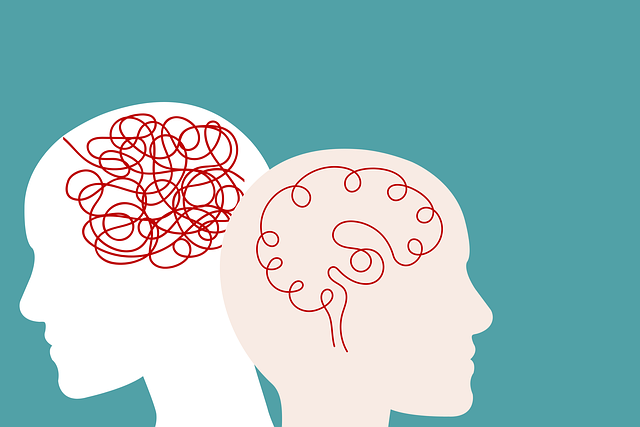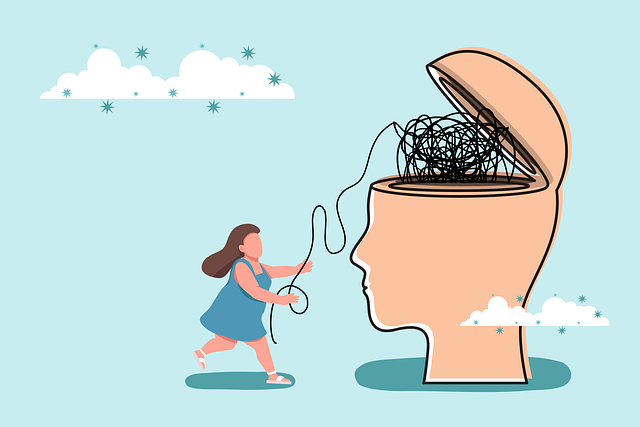Cultural sensitivity in modern mental healthcare for young children is crucial for effective treatment of codependency issues. Therapists use empathy-building techniques, tailored cultural exercises, and developmentally-appropriate approaches like play therapy and education to create inclusive spaces that empower kids to embrace their identities while developing healthy coping strategies. These methods foster trust, understanding, and anxiety relief, addressing complex challenges and promoting mental wellness for each child's unique needs.
In today’s diverse society, cultural sensitivity is paramount in mental healthcare. The field must adapt to meet the unique needs of young children presenting with codependency issues. This article explores three crucial aspects: understanding cultural sensitivity in mental healthcare, navigating challenges specific to young children’s therapy, and implementing strategies to foster codependency awareness and healing. By delving into these topics, we aim to revolutionize practices, ensuring effective and culturally responsive care for all youth.
- Understanding Cultural Sensitivity in Mental Healthcare
- Challenges and Considerations for Young Children's Therapy
- Strategies to Foster Codependency Awareness and Healing
Understanding Cultural Sensitivity in Mental Healthcare

Cultural sensitivity is a cornerstone in modern mental healthcare practice, especially when working with young children and their families. It involves recognizing and respecting the cultural diversity of patients, understanding how cultural beliefs and practices impact mental health and seeking to provide care that aligns with these values. This approach ensures that therapy for young children with codependency issues or other challenges is effective and respectful.
Building empathy within therapeutic settings is a key strategy to foster cultural sensitivity. Therapists can employ various empathy-building strategies, such as active listening, open-ended questions, and reflecting back the patient’s feelings, to create a safe space for individuals from different backgrounds. Additionally, integrating positive thinking exercises and social skills training into therapy sessions can empower young clients to navigate their cultural identities while promoting healthy coping mechanisms.
Challenges and Considerations for Young Children's Therapy

Cultural sensitivity is particularly crucial when addressing mental healthcare for young children, where therapists must navigate complex challenges and considerations. One significant hurdle is understanding and bridging the gap between diverse cultural beliefs and practices regarding childrearing, health, and emotional expression. For instance, codependency issues, which may manifest differently across cultures, require tailored therapeutic approaches that respect familial dynamics and cultural contexts.
Therapists working with young clients should employ compassion cultivation practices to foster an environment of trust and understanding. Mental wellness journaling exercises can be adapted to incorporate cultural elements, offering guidance that resonates with various backgrounds. By acknowledging and embracing these differences, therapists can provide effective anxiety relief tailored to each child’s unique needs, ultimately promoting their mental wellness in a culturally sensitive manner.
Strategies to Foster Codependency Awareness and Healing

Fostering codependency awareness and healing in young children requires a nuanced approach tailored to their developmental stage. Therapy for young children with codependency often involves play therapy, where therapists use games and imaginative activities to help kids express their feelings and understand healthy relationships. This method allows children to process complex emotions in a safe, controlled environment. Mental health education programs designed specifically for this age group can also empower them to recognize and set personal boundaries, promote emotional well-being promotion techniques, and cultivate self-esteem.
Additionally, compassion cultivation practices have proven effective in these settings. By teaching young clients empathy and kindness towards themselves and others, therapists encourage a sense of security and belonging. This not only aids in breaking the cycle of codependency but also fosters resilient coping mechanisms and enhances overall mental health. Integrating these strategies into therapy sessions can significantly contribute to the healing process and promote healthier relationships as children grow.
Cultural sensitivity is paramount in mental healthcare, especially when working with young children and their families. By understanding and addressing cultural nuances, therapists can create a safe and supportive environment, fostering codependency awareness and healing. Overcoming challenges requires a tailored approach, considering the unique needs of each child and family dynamic. Through implementing effective strategies, therapists can revolutionize therapy for young children, promoting healthier relationships and improved mental well-being.










